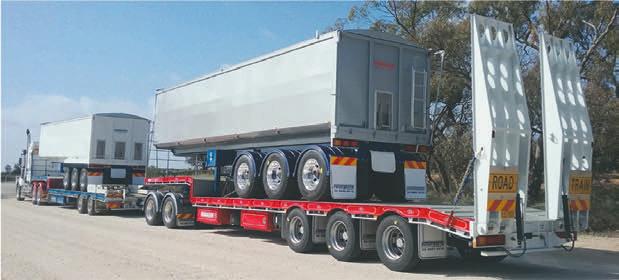
5 minute read
Transport fleet going
AFTER a longstanding successful business of 47 years, Anthony (Tony) Madden has decided to call it a day and retire.
He founded Madden’s Refrigerated Transport in 1974, as a general freight company operating out of Goulburn. Early into the business, he landed an account with Tancred’s Meat Company and began delivering meat into Canberra and the surrounding regions.
In 1980 Tancred Meats purchased the Harden Abattoirs in the South West Slopes region of NSW. They approached Madden to move his business to Harden and after some consideration the decision was made to move. Harden not only had its own abattoir but provided a central location to both the abattoir at Cootamundra and the abattoir at Young. It also provided close proximity to the fertile fruit growing areas of Young, Kingsvale and Wombat and was ideally situated for transportation to both Sydney and Melbourne. Proud of the reputation of the growing business, it was decided to change the company name to Maddens Refrigerated Transport.
Coles approached Madden in 1985 as they wanted a specialised refrigerated transport provider to cart chilled meat direct from the local abattoirs to the supermarkets. This was the first contract for the direct delivery of chilled and frozen meat for Coles to be signed outside of the major cities. By this time, Maddens Refrigerated Transport was picking up chilled and frozen meat from Cootamundra, Gundagai, Harden, Junee, and Young abattoirs, with deliveries directly into supermarkets as far south as Eden and as far north as Port Macquarie.
With the business further expanding into the cartage of frozen produce, Madden identified the need for a commercial cold storage facility in the area. In 1998 a 400-pallet export cold storage and blast freezing facility was built at the Harden site. Chilled meat and fresh fruit from the local area would be blast frozen at Harden, preserving the quality of produce, reducing costs to customers of transporting product to Sydney for blast freezing.
The name of the company was also changed to Maddens Refrigerated Transport and Cold Storage.
Demand for the services of the cold storage facility were growing, and in 2007 Madden purchased the now closed Harden abattoir site with the view of creating a larger export cold storage and blast freezing facility. The new 2000-pallet cold storage facility opened in 2008, packing between 500650 export containers per year.
Maddens Refrigerated Transport and Cold Storage has continued to grow and evolve over time with the needs of its customers, providing temperature controlled transport, general freight transport, dry storage, blast freezing, frozen storage, chilled storage, container packing, local and interstate deliveries.
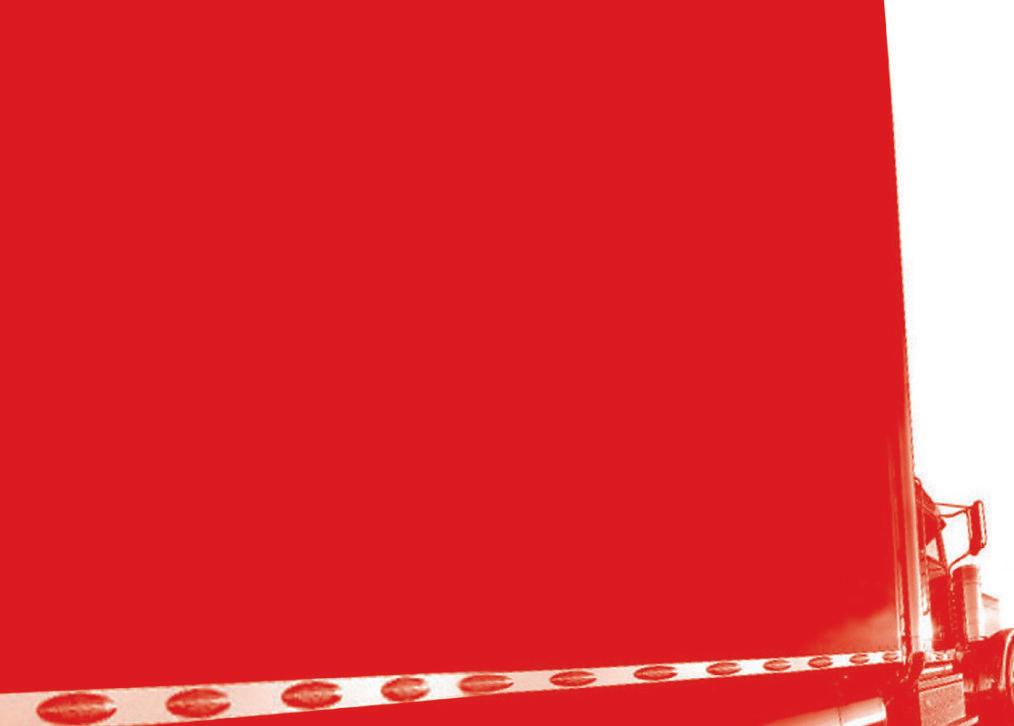
Now, as Madden prepares for retirement, he has decided to sell his remaining fleet – consisting of approximately 16 trucks and 23 trailers – via
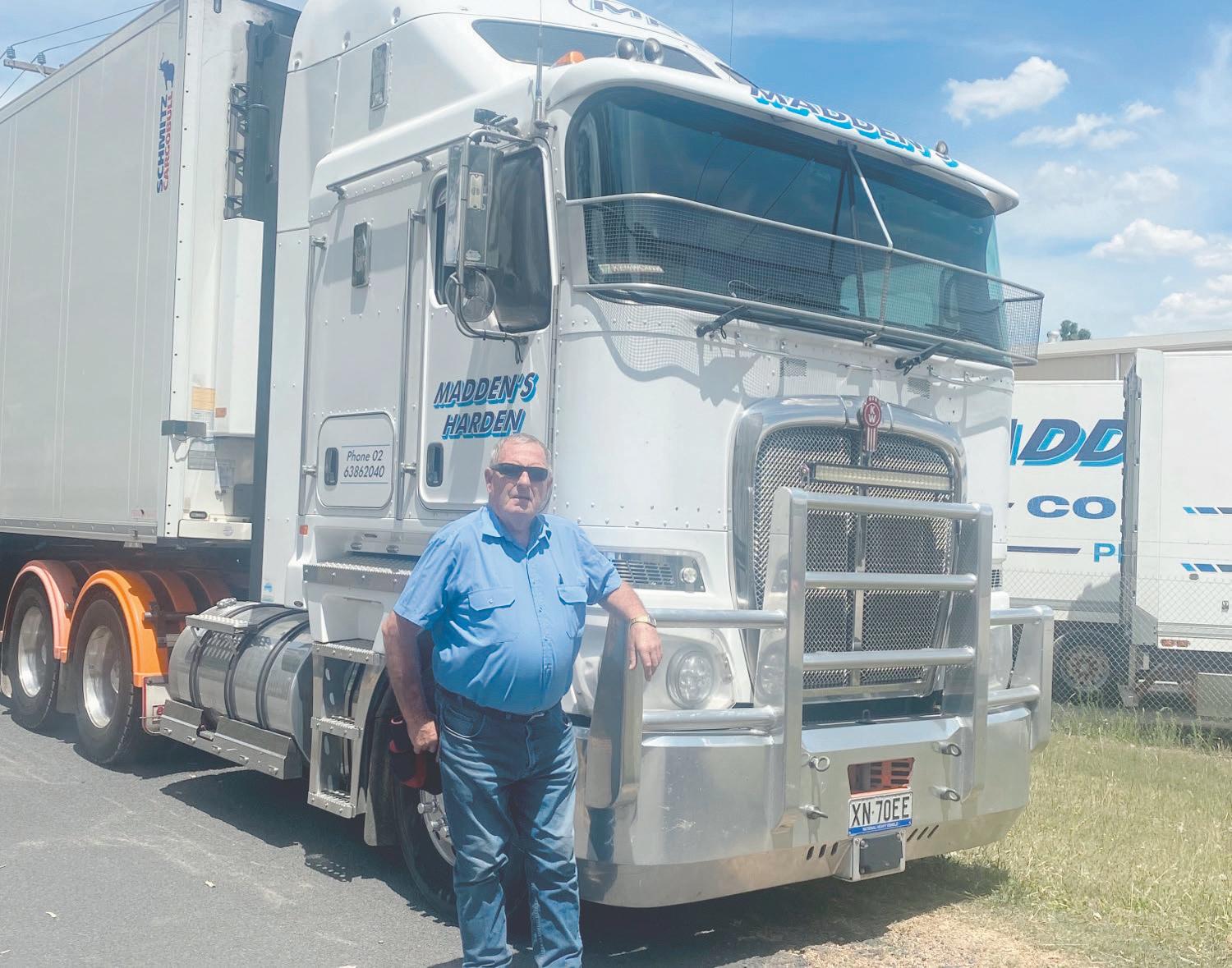
Grays.com. Assets will range from Kenworth and DAF prime movers to FTE refrigerated trailers and more.
“Grays has been great to deal with since day one and the main reason I am selling with them is due to being able to sell my fleet from the comfort of my yard,” explained Madden.
“Steve has also been very attentive and gone over and beyond. Not having to relo- cate my fleet to another site is a huge weight off my shoulders.” The online auction will commence on February 9 and close February 15.
To find out more about this major retirement sale, visit grays.com/maddens or contact Steve Martin on 0447 144 579/steve.ma rtin@grays.com.au for any further information regarding the sale.
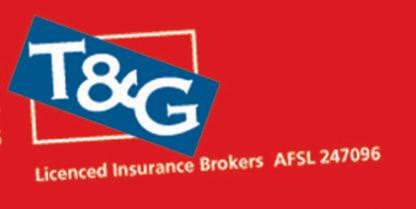
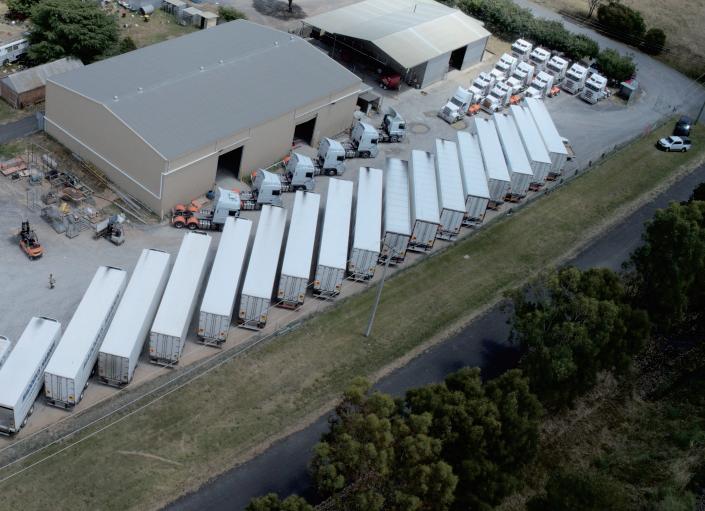

CANADIAN hydrogen trucking pioneer, Hydra Energy, is making some serious headway in Canada, with additional focus on Australia and the US transportation markets.
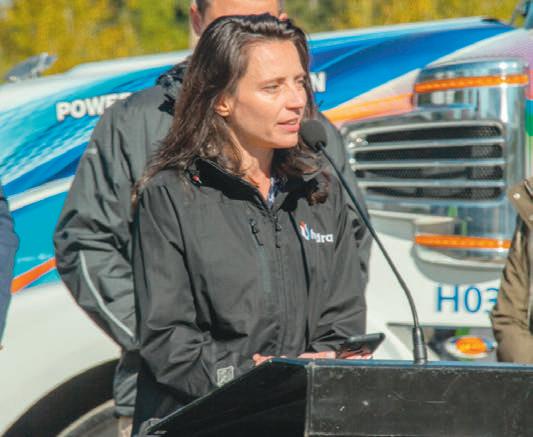
Hydra just broke ground on the world’s largest hydrogen refuelling station for heavy-duty trucks in Western Canada forming a template it can replicate in other geographical regions, including Australia.
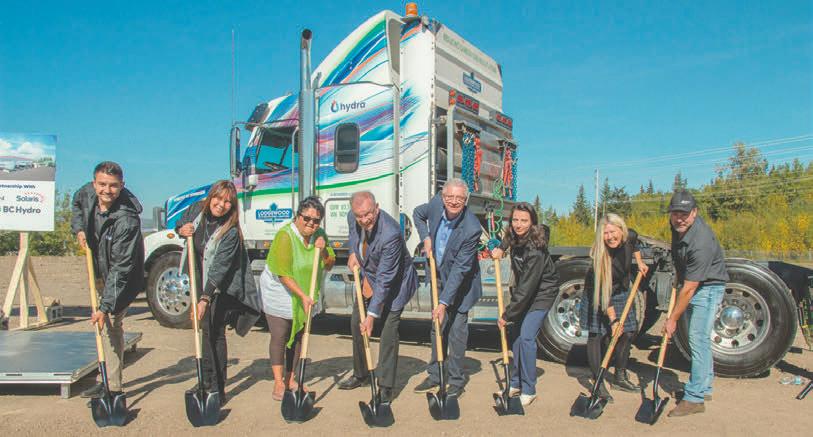
Hydra provides a zero-cost, hydrogen-diesel co-combus specialist, PCL Construction, with project financing support coming from Hydra’s seed funders and non-dilutive government funding. New partner and project announcements are expected early in the New Year.
Big Rigs: You say this development will form a template that Hydra Energy can replicate in other geographical regions, including Australia. How so?
Verhagen: One of the classic challenges of clean energy-related breakthroughs is the chicken and egg problem and which comes first – the technology or the infrastructure? In Hydra’s innovative approach in Prince George, they are tackling this head on by providing both their proprietary hydrogen-diesel, co-combustion conversion kits for Class 8 trucks (at no cost to fleet owners and owner-operators) and building out the hydrogen refuelling station supporting 65 Hydra-converted trucks in the region. This allows Hydra to prove out their Hydrogen-as-a-ServiceTM (HaaSTM) business model and form a template for licensing partners to replicate in other regions they have clean hydrogen available, including Australia. Think of Hydra as first proving the model that can then quickly expand around the world in more of a channel-type setup. Then licensees have to maintain minimum sales to have exclusivity over a certain ge- ography.
Big Rigs: Tell us a bit more about Hydra. How are you different from the increasing array of players entering this market?
Verhagen: What’s most unique about Hydra in this very popular and competitive hydrogen transportation space is that they have uniquely focused on leveraging existing clean hydrogen sources and delivering a viable emissions-lowering solution to commercial fleet owners and owner-operators to help make a dent in transportation emissions right now.
There’s so much talk about zero-emission vehicles and achieving Net Zero but Hydra is about providing an economical, transition solution right now that reduces emissions, provides fleets with a clean, local fuel source at diesel-equivalent prices, and offers immediate offtakers for organisations with clean hydrogen they want to monetise in the most profitable way possible. Bottom line is Hydra offers a commercially available hydrogen trucking solution right now that costs nothing for fleet owners and owner-operators. This means they can reduce emissions today – without negatively impacting truck performance regardless of payload or weather – and don’t have to wait for the expensive zero-emission trucks and infrastructure promised down the road.
A clean hydrogen-based solution like Hydra offers is also ideal over alternative emis- sions-lowering technologies for heavy-duty trucking since it provides meaningful GHG emissions today, provides the high torque and power needed for traction and heavy payloads, doesn’t add the weight of heavy batteries that reduce payload and revenue, works in cold temperatures, avoids range anxiety, and refuels as quickly as diesel. Hydra has found a viable way to accelerate the use of clean hydrogen to decarbonise one of the most hard-to-abate sectors in the world and they’re doing it right now with trucks on the road running real routes.
Big Rigs: You say that Hydra provides a zero-cost, hydrogen-diesel co-combustion conversion kit (not fuel cells) to switch existing Class 8 trucks to run seamlessly on both hydrogen and diesel reducing emissions 40 per cent per truck in the process. How much does this cost the operator up front? Can you give us some success stories about Canadian fleets that have converted. What difference is it having on the bottom line?
Verhagen: In the Prince George model, Hydra pays for every hydrogen-diesel truck conversion in exchange for a long-term, low-carbon hydrogen fuel contract at a fixed, diesel-equivalent price. Conversions take just a couple of days to complete and are fully reversible.
To date, Hydra is the first company to deliver a hydrogen-converted, heavy-duty vehicle to a paying fleet customer (in Prince George), to deliver the world’s first hydrogen-converted armoured vehicle (in Edmonton), and to sign an MOU to deliver the world’s first airside hydrogen-diesel fleet at an international airport (in Edmonton). Hydra already has two paying fleet customers and more signed MOUs with additional fleets to be announced in the New Year. In each case, fleet owners benefit from immediate emissions reduction and a stable, local clean fuel supply at diesel parity (important during such fuel market volatility) while attracting a much-needed younger generation of truck drivers attracted to a more environmentally friendly trucking industry – all at no cost to fleet owners and with no negative impact on truck performance. It’s a win-win all around.
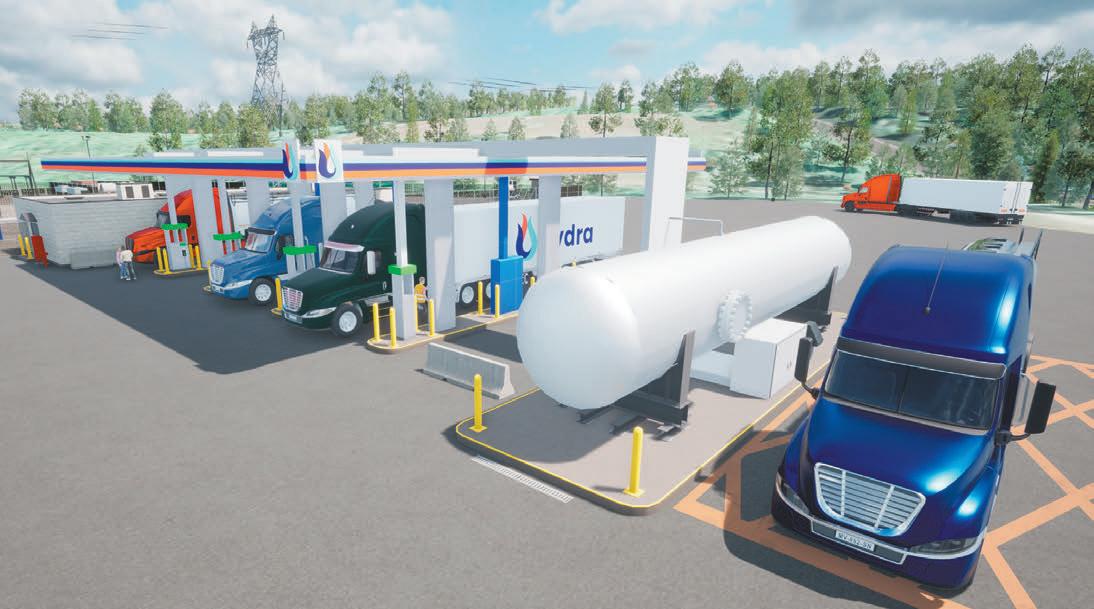
Continued on page 30










